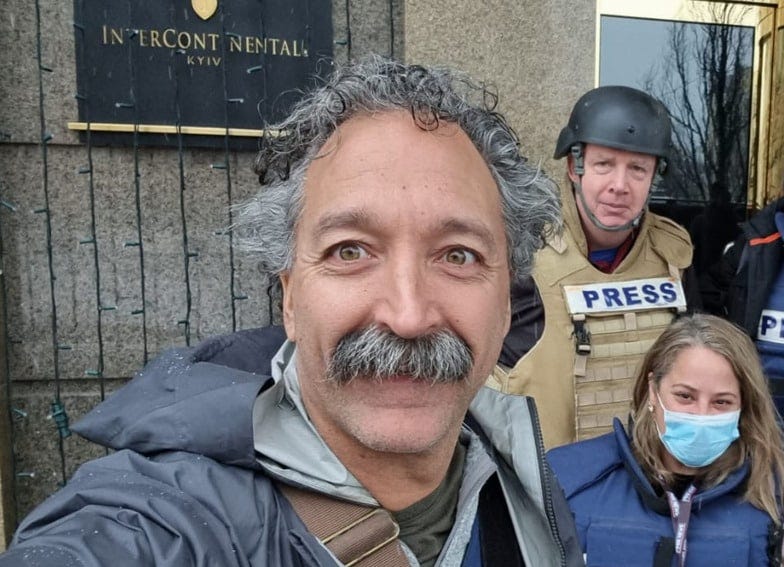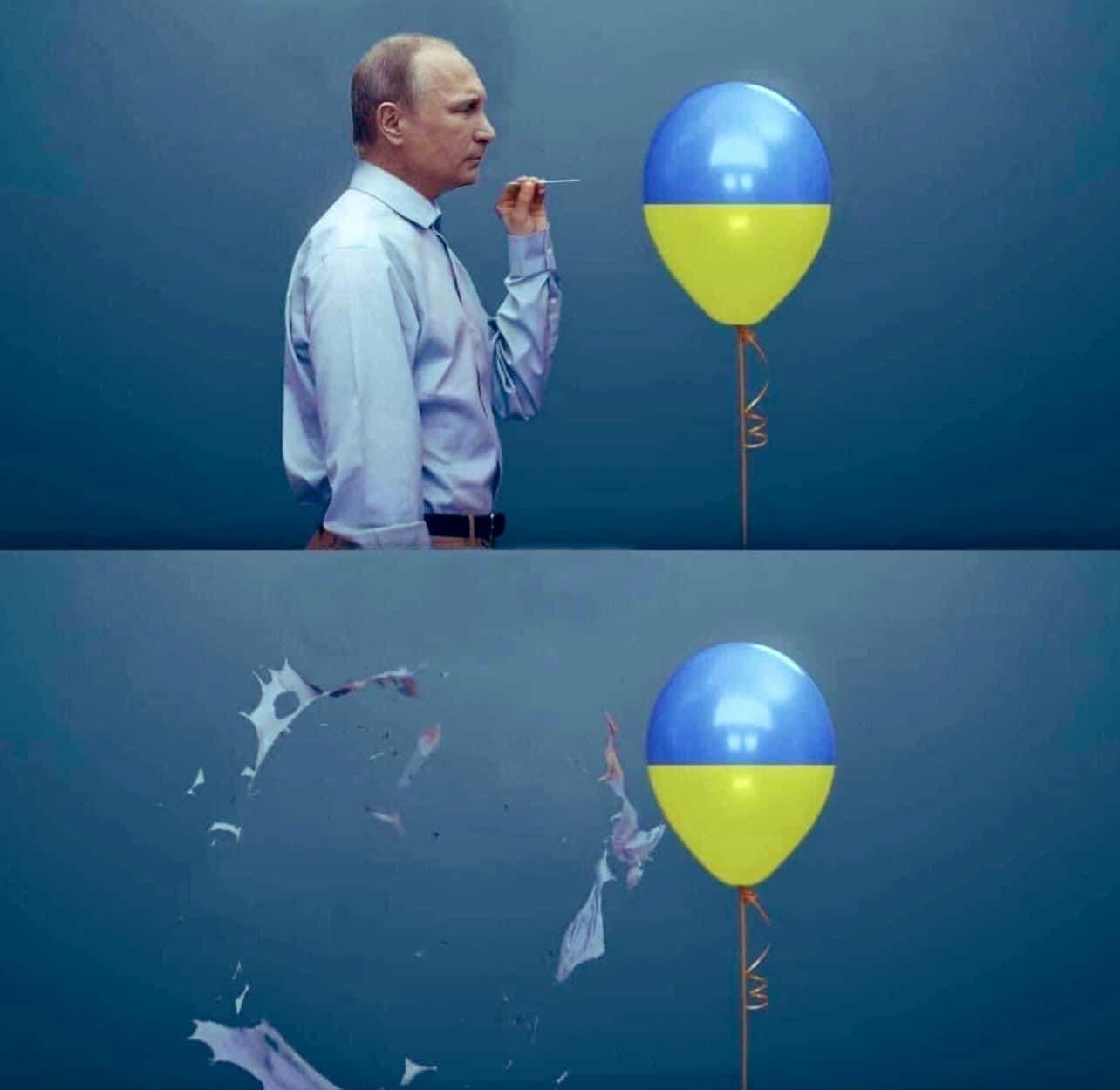The Best of Ukraine War Coverage
From Twitter to the Times, the media tries to penetrate the fog of war

I know a lot of us have become voracious consumers of media during the Ukraine crisis. I’m not a daytime TV viewer, for example, but I was glued to the tube this morning to watch President Zelenskyy plead with Congress (“You all know the words ‘I have a dream.’ Well, I have a need.”) to help keep Russian bombers out of Ukrainian skies. I read the mainstream media. I subscribe to newsletters. I scan Twitter. I read magazines, blogs, and emails and texts from friends who share coverage. This is without a doubt the most heavily mediated war in our lifetime. Sometimes it can feel overwhelming.
So, herewith, a short compendium of what I’ve found to be the best sources of Ukraine coverage. My standards are simple. I like coverage that is timely and factual, but also comprehensive and analytical. As a young reporter, I had the “five W’s” drilled into me when writing a lead: who, what, when, where and why. The first four are relatively simple; the fifth is harder, but sometimes the most valuable element to get right. So I prize intelligent coverage that not only provides the basics, but also serves up context, perspective and understanding.
With so much media coverage on a real-time basis, and so many sources of it, from print to digital, finding a solid storyline can be challenging. For my money, the best elemental coverage has been the daily “wraps” provided by the Wall Street Journal. They usually run a couple thousand words and provide a panoramic overview of the previous 24 hours’ events. They are crisp, factual and dispassionate reports. On a regular basis, the Journal selects other elements of the crisis to explore, which they do with great effect, like this outstanding account of employees at the Chernobyl nuclear graveyard working under the gunpoint of Russian soldiers, or this incisive analysis of China’s motivations during Ukraine and beyond.
I do check in with the New York Times everyday, but find its presentation to be chaotic, some of the story choices to be esoteric and generally too much of the coverage run by reporters, and less by editors. In the flood of events that is Ukraine, editors are needed to curate for clarity and coherence. I’ve found that kind of curation a little lacking in the Times’ coverage. But it’s the Times, after all, and a lot of its armchair analysis has been valuable, such as this look at Putin’s obsession with ethnicity and empire.
My TV viewing habits are haphazard, but I find myself drawn to Brett Baier’s nightly report on Fox (don’t hate me, please). The newscast tends to slam Biden more than it needs to, especially during a crisis (it is Fox, after all), but overall Brett’s coverage is solid and notably features the reporting of Jennifer Griffin, who covers the Pentagon. She is a pro. Her sources are impeccable and she never leans over the tips of her skis. The other night while reporting on the death of a colleague during the crisis, Pierre Zakrzewski, Griffin’s professional demeanor broke down briefly. Watch this video, which I took directly off the TV. It was a rare moment of passion and emotion from a veteran reporter reflecting the gravity of what’s happening on the ground.

Even though it can be overwhelming, we’re fortunate to have such a rich stream of new sources to choose from. Puck is a new digital media platform featuring the work of veteran political reporter Julia Ioffe (Atlantic, New Yorker, Politico). She has been excellent at providing analysis and perspective, like this piece that explores the Russian political psyche and why removing Putin may not change much, or this interview with a Russian pollster explaining how the state is controlling public opinion.
And because we’ve all gone digital, we can now access local reporting like that of the Kyiv Independent, which recently ran this piece describing the horror of life for people living in Mariupol while it’s under constant bombardment by the Russians.
For the long view, I like The Economist, which has a whole week to put its book together. So its reporting takes on more depth than daily files and provides a little more flair in the way it’s presented. A recent story, for example, noted that “Mr. Putin can hardly have believed the taradiddles he peddled about Ukraine’s drug-addled neo-Nazi elite perpetrating genocide and ordinary Ukrainians desperate for rescue by their Russian brothers.” (Pro tip: “taradiddle” is British slang for a petty lie or pretentious nonsense).
There’s Twitter, which is great for breaking news, although you have to slog through a fair amount of snarky partisanship, which I don’t have time for right now. Twitter’s also a great source of visual commentary on the crisis, those a-picture-is-worth-a-thousand-words posts, like this image put together by visual artist Banksy.
And within my own very teeny-weeny Twitterverse, I’ve taken great pleasure in cherry-picking taradiddles great and small peddled by Russian leaders and awarding them Pinocchios. Hey, every little bit helps.






Hi Russ. This "Just Exactly Perfect" piece should get you an award. You were fair in your analysis and poignant in your commentary. I was in agreement with 99% of your "positioning" (I never give anyone 100%) on who is factual in the media ranks. Jennifer Griffin is a remarkable person/reporter. Thank you and I hope and pray we can get peace in the Ukraine soon. Cuz Bob
Although I don't agree with 99% of what you write, I find it interesting to read articles like this from time to time to see how much people are in thrall to their own biases and prejudices, and how difficult it is for them to follow sources other than those that support their biases in an unbiased manner. In fact, you basically listed only those sources that are pro-Ukrainian without mentioning sources from the "other side of the barricade". You are obviously one of the people who think that Russia invaded Ukraine completely unjustified, unprovoked, irrationally. So, from my point of view, you have flouted your own "five W's" rule - specifically the fifth pillar of a good reporter, which is also the most important one => the "why" one. No human being acts without a reason, even if various politicians and commentators (including you!) try to convince us of it today. Did you also write this article of yours without any reason? Or did something provoke you to write it? Didn't you write it with a goal, a purpose? And yet you don't hesitate to accuse Putin (or even the entire Russian nation) of acting without reason, without purpose ... purely psychopathically. This is a very typical manifestation of "double standards" and warped thinking that only brings more injustice into the public arena. I am not advocating any war or violence, but I abhor the double standard and injustice that people like you sow into the world, making it worse.